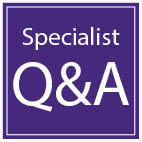 Our editorial industry is made up of people carrying out a huge range of tasks across many different sectors. Although we are bound by common aims – to make text consistent, accurate and clear – our chosen areas of work can differ in fascinating ways.
Our editorial industry is made up of people carrying out a huge range of tasks across many different sectors. Although we are bound by common aims – to make text consistent, accurate and clear – our chosen areas of work can differ in fascinating ways.
Etty Payne is a freelance translator, proofreader and copy-editor. She has answered some questions on one of her specialisms: editing medicolegal reports.
1. Briefly, what’s your work background?
I have a degree in French and was an in-house translator for 16 years, much of that time at the Council of Europe in Strasbourg. Editing and proofreading was very much part of the translation work and I continued as a freelancer once we moved back to the UK.
2. How long have you specialised in this particular kind of editorial work, and how did you get started?
I’ve been doing medicolegal reports for nearly 4 years. I was already specialising in medical communications, nursing and healthcare and was approached by a medicolegal expert who wanted his reports proofread. I’ve since picked up several similar clients.
3. What specific knowledge, experience or qualifications do you need?
You need a lot of medical knowledge and some legal knowledge. I don’t have a degree in medicine but, for a number of reasons, I’ve done a huge amount of self-study in various fields of medicine, pretty much continuously since the age of 18.
Because these reports are often written at speed or transcribed from poor quality dictations, they can contain many mistakes, and yet clarity and accuracy are crucial. You need to be able to see at a glance whether or not names of drugs and diseases or anatomical and medical descriptions are correct. But at the same time, as the reports are written for readers who aren’t expected to have any medical knowledge, you have to be able to read them from their point of view and ensure that complex medical ideas and opinions are expressed in very clear, precise English.
A good understanding of the strict legal requirements and principles governing how these reports are written is also essential so that you can let the expert know if their report hasn’t followed the rules.
And, because some clients want their reports formatted from scratch, it definitely helps to be completely comfortable with the intricacies of Word.
4. How do you go about finding work in this area?
The first client found me, and since then it’s been via my website and word of mouth.
5. What do you most enjoy about the work?
I love checking facts and rewording for the non-medical reader. I also enjoy the variety the reports bring to my work: they range from 20 pages to 80 pages so can make a welcome break from a 400-page academic book.
6. What are the particular challenges?
The main challenge is the depth of work that needs to be done (all very accurately, obviously) with a quick turnaround because clients often want their reports instantly! I have a long checklist that I work through so even when reports are well written, there’s still an incompressible length of time required for each one.
7. What tips would you give to someone wanting to work in this field?
If you have the medical and legal background, then it’s the same as for any specialism: get yourself out there and tell the right people what you do and how you can help them.
8. What is the pay like?
The pay is usually better than for the big publishers, but, because of the detailed attention each report needs, I find it works out a little lower than the rates I usually earn for most business clients.
9. What other opportunities do you think editorial work in this area might lead to?
I’ve been asked to present a workshop on writing medicolegal reports at a conference of medicolegal experts. The thought is pretty daunting so I may offer instead to prepare a written document that experts could work from. Much less scary!
 Etty Payne (Elegant Words) is an Advanced Professional Member of the SfEP, specialising in international development, health/medical documents and anything to do with dogs and photography. She loves quizzes and generally finding answers to questions, but the question she finds hardest to answer is ‘Where are you from?’: she was born in Morocco with Venezuelan nationality, grew up in Brighton, went to university in Wales, got married in Norway, lived for many years in Paris, Strasbourg, Lisbon and Brussels and now lives in Hampshire.
Etty Payne (Elegant Words) is an Advanced Professional Member of the SfEP, specialising in international development, health/medical documents and anything to do with dogs and photography. She loves quizzes and generally finding answers to questions, but the question she finds hardest to answer is ‘Where are you from?’: she was born in Morocco with Venezuelan nationality, grew up in Brighton, went to university in Wales, got married in Norway, lived for many years in Paris, Strasbourg, Lisbon and Brussels and now lives in Hampshire.
You can find Etty on Twitter and LinkedIn.
Proofread by CIEP Entry-Level Member Karen Pickavance.
The views expressed here do not necessarily reflect those of the CIEP.
